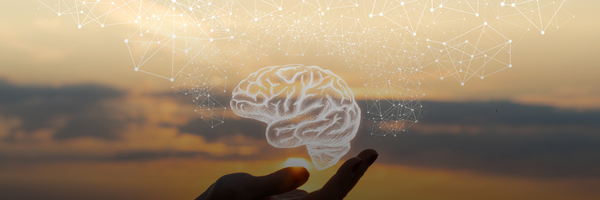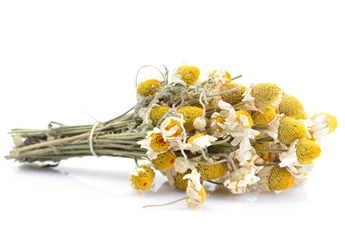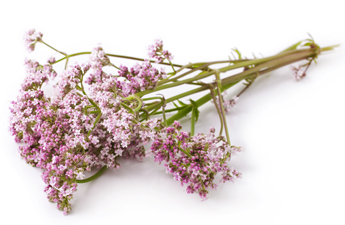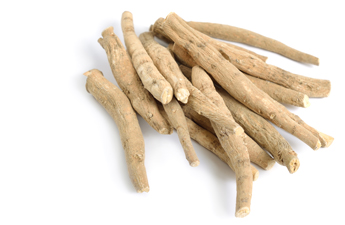Feeling Foggy? Nootropic herbs to enhance the brain
Enhance memory and concentration, increase focus, instill calm and promote longevity for the brain with Nootropic herbs

By Tamara Welsh, Happy Herbalist
Herbs lend themselves beautifully to the holistic way of healing. To heal, we need to understand and appreciate the interconnectedness and dynamic play of the whole. When we talk about “brain herbs,” or nootropics, (or any herbs touted for a specific use), it’s important to understand that while some herbs have a strong affinity for a particular organ, it is often via their effects on the body as a whole that makes them so potent as therapeutic agents.
With this in mind, there are many herbs known to assist in the functioning of the brain. Some herbs have the ability to increase mental energy and focus. Others are able to boost mood by interacting with our neurotransmitters (chemical messengers in the brain). Herbs have been shown in the literature to boost memory and are therefore useful for students or anyone looking to improve memory recall. Perhaps most importantly, research is now showing that herbs can help with longevity by keeping our brain healthy as we age.
But which herbs should you take when and why!? That’s a big question and very individual but here are just a few suggestions regarding brain boosting/nootropic herbs and when you might turn to them.
Herbs to be brain fit
Brahmi, Ashwagandha, Saffron
As mentioned above, the brain is just one part of our whole and so all the same general rules apply to keep it happy and healthy (eating well, exercise, hydration, social interactions etc). A true stand out herb for brain health is the Ayurvedic herb, Brahmi (Bacopa monnieri). It’s worth noting here that Brahmi is also known as Bacopa and it is often confused with other herbs that go by the common name of Brahmi such as Gotu kola (Centella asiatica). It is a water loving plant that grows along river banks and is popular in Ayurvedic medicine for its ability to give strength to the mind and rejuvenate the nervous system. To further support this, current research shows Brahmi has the ability to improve memory (especially medium to long term memory) and decrease depression and anxiety scores. It also has indications for ADHD and improvement of quality of life in Alzheimer’s disease.
Another herb to consider for general brain health is Ashwagandha (Withania somnifera). Ashwagandha is a full body tonic. It is a highly nourishing herb to our nervous system, helping us to better cope with stress and calming anxiety and insomnia. It has been shown to improve performance on cognitive tasks, executive function, attention and reaction time. A safe herb to take long term, Ashwaghanda is a wonderful option for those seeking long-term brain health.
Having potent antioxidant and neuroprotective action, Saffron (Crocus sativus) is another remarkable herb for brain health. Saffron boosts the mood via its effect on the neurotransmitters in the brain and is gaining interest for the treatment of various stages of cognitive impairment. Saffron is a delicious herb to add to meals but it can also be taken in capsule or extract forms. Learn more about Saffron in my blog here.
Herbs to improve focus and memory
Ginkgo, Gotu Kola, Rosemary
Herbs such as Ginkgo (Ginkgo biloba) have been used for thousands of years to focus the mind. One of the main mechanisms of action of Ginkgo is its ability to enhance the microcirculation and bring fresh blood and oxygen to all the cells in the body, including the brain. Ginkgo contains multiple compounds such as flavonoids and terpenoids that are thought to contribute to its neuroprotective and vasotropic effects. Gingko combines synergistically with Gotu kola, to enhance the metabolism of the cells and remove cell waste. These herbs lead to clearer thinking and enhanced cognition, perfect for someone studying or needing to focus to meet a deadline.
Additionally, the culinary herb Rosemary, rich in volatile oils, is a circulatory stimulant, boosting blood flow to the brain and extremities. It has nootropic and neuroprotective actions when ingested. Smelling rosemary essential oil, such as in our Focus snifter, can help to stimulate the mind and quickly increase concentration and focus.
Herbs to drop into the flow
Lion’s Mane, Tulsi (Holy Basil)
If you’re mind is feeling scattered and foggy you may wish to look to herbs that can enhance alertness without overstimulation. The medicinal edible mushroom Lion’s mane (Hericium erinaceus) has been found to enhance the expression of neurotrophic factors such as nerve growth factors in the basal forebrain. Stimulating this part of the brain releases acetylcholine which is associated with wakefulness. Lion’s mane mushroom therefore results in a feeling of steady alertness without over stimulation and the associated jitters.
Similarly, one of the benefits of India’s most sacred plant Tulsi (Ocimum sanctum), also known as Holy Basil, is its ability to create a calm and clear mind without the mental agitation that comes from caffeine rich herbs like black tea or coffee. Tulsi is an adaptogen and its pharmacological actions have been shown to help the body and mind cope with a wide range of stressors. It has a calming effect allowing for relaxation and clarity of thought. Tulsi is best taken long term and delicious as a tea on its own or in a brain boosting blend.
Happy Herb Co provides referenced information for educational purposes only and does not make any therapeutic claims for any of their products.
Please seek advice from a healthcare provider if you wish to use herbs for therapeutic purposes.
References
Stough C et al. The chronic effects of an extract of Bacopa monniera (Brahmi) on cognitive function in healthy human subjects. Psychopharmacology. 2001;156(4):481-4.
Calabrese C, Gregory WL, Leo M, Kraemer D, Bone K, Oken B. Effects of a standardized Bacopa monnieri extract on cognitive performance, anxiety, and depression in the elderly: a randomized, double-blind, placebo-controlled trial. The Journal of Alternative and Complementary Medicine. 2008;14(6):707- 13.
Ng Q, Loke W et al. A systematic review of the clinical use of Withania somnifera (Ashwagandha) to ameliorate cognitive dysfunction. Phytotherapy research. 2019
Ahlemeyer B, Krieglstein J. Neuroprotective effects of Ginkgo biloba extract. Cell Mol Life Sci. 2003 Sep;60(9):1779-92.
Mills S. The Dictionary of Modern Herbalism. London: Thorsons; 1989.
Lai PL, Naidu M, Sabaratnam V, Wong KH, David RP, Kuppusamy UR, Abdullah N, Malek SN. Neurotrophic properties of the Lion’s mane medicinal mushroom, Hericium erinaceus (Higher Basidiomycetes) from Malaysia. Int J Med Mushrooms. 2013;15(6):539-54.
Cohen MM. Tulsi – Ocimum sanctum: A herb for all reasons. J Ayurveda Integr Med. 2014 Oct-Dec;5(4):251-9.
Also by The Happy Herbalist
Discover the JOY of DAMIANA: Our favourite Happy Herb!







 Nextwave
Nextwave

